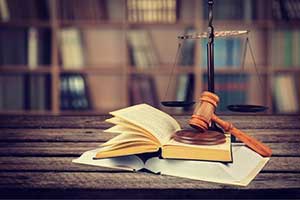 The creditor’s committee plays a unique and significant role in a Chapter 11 bankruptcy case, with a broad ability to influence the management of the case. The committee’s role is to maximize protection for the general unsecured creditors, which may include investigation of assets and liabilities, consultation on the operation of the business, negotiation, consultation with the debtor in possession, recommendations on proposed plans, alliances with other interested parties and more.
The creditor’s committee plays a unique and significant role in a Chapter 11 bankruptcy case, with a broad ability to influence the management of the case. The committee’s role is to maximize protection for the general unsecured creditors, which may include investigation of assets and liabilities, consultation on the operation of the business, negotiation, consultation with the debtor in possession, recommendations on proposed plans, alliances with other interested parties and more.
With that power comes significant responsibility, which may be daunting for some creditors—particularly if they lack extensive knowledge of business operations or the bankruptcy process. Fortunately, creditor’s committees are empowered to hire professionals to assist them, including attorneys. These professionals are compensated by the bankruptcy estate.
Creation of the Creditor’s Committee
The creditor’s committee in a Chapter 11 case is appointed by the U.S. Trustee. The norm in a larger Chapter 11 case is that the committee be made up of the debtor’s seven largest unsecured creditors, but there may be variations depending on the size of the outstanding debt, the number of creditors and the interest of creditors in participating. A smaller committee may be appointed in some cases, and in a smaller case where creditor interest is low, the U.S. Trustee may decide not to appoint a committee.
Operation of the Creditor’s Committee
 The creditor’s committee has wide latitude in determining how the committee will operate. Although it is not required, it is a good idea for the creditor’s committee to agree on a clear system of operation. The adoption of committee bylaws, for example, will make clear core issues such as exactly what authority the committee has vested in individual members, how the committee will reach decisions, how conflicts of interest will be addressed.
The creditor’s committee has wide latitude in determining how the committee will operate. Although it is not required, it is a good idea for the creditor’s committee to agree on a clear system of operation. The adoption of committee bylaws, for example, will make clear core issues such as exactly what authority the committee has vested in individual members, how the committee will reach decisions, how conflicts of interest will be addressed.
The creation of committee bylaws is one early area in which a committee will generally benefit from the assistance of an experienced Chapter 11 attorney. It would be difficult for creditors unfamiliar with the Chapter 11 process and all the committee’s possible functions to anticipate all the procedures that should be included in the bylaws.
Function of the Creditor’s Committee
The fact that the debtor company is in Chapter 11 bankruptcy is a clear indicator that something has gone wrong in the operation of that business. Although sometimes the problem may have arisen through no fault of the company’s management, as in the case of the impact of a natural disaster, significant changes are usually required in order to make the company profitable. Whether that means shifting away from strategies that have failed or adapting for a changing economy or other new variable, part of the committee’s job is to educate itself about those operations and ensure that the company is on the right path.
Often, the debtor in possession will cooperate with the committee and make all relevant information readily available, particularly when the Chapter 11 petition was voluntary and the debtor clearly recognizes the need for change in order to save the business. However, in cases whether the debtor is resistant or simply doesn’t act promptly to provide requested information, the committee can request an order from the bankruptcy court.
Responsibilities of Committee Members
 The creditor’s committee has a fiduciary duty to the general unsecured creditors, whose interests it is charged with representing. Of course, the interests of unsecured creditors may sometimes be at odds with one another. It is the committee’s responsibility to balance those interests, and to avoid placing individual interests above the good of the class. Although committee members enjoy qualified immunity from liability for actions taken in furtherance of their roles, willful misconduct or actions outside their authority may result in personal liability.
The creditor’s committee has a fiduciary duty to the general unsecured creditors, whose interests it is charged with representing. Of course, the interests of unsecured creditors may sometimes be at odds with one another. It is the committee’s responsibility to balance those interests, and to avoid placing individual interests above the good of the class. Although committee members enjoy qualified immunity from liability for actions taken in furtherance of their roles, willful misconduct or actions outside their authority may result in personal liability.
Contact KPPB LAW Today For More Information
Experienced attorneys like those in KPPB LAW can provide guidance to help the creditor’s committee act safely and effectively, from beginning to end. We can assist with the creation of bylaws to keep the committee operating legally and efficiently, obtaining information necessary to make decisions and recommendations, negotiations with the debtor, other classes of creditors and other interested parties, and guidance regarding legal obligations and fiduciary responsibilities.
If you’ve been appointed to a creditor’s committee, you can have a significant impact on the next steps, including the successful rebuilding of the business in question and the amount recoverable by creditors. Protect your interests as a creditor, your role as a fiduciary and the interests of all affected parties by getting the professional help you need to fulfill your role. If you would like further information on what our attorneys can assist you with, please contact KPPB LAW by sending us a message online or by giving us a call today.
